Office of Research & Development |
 |

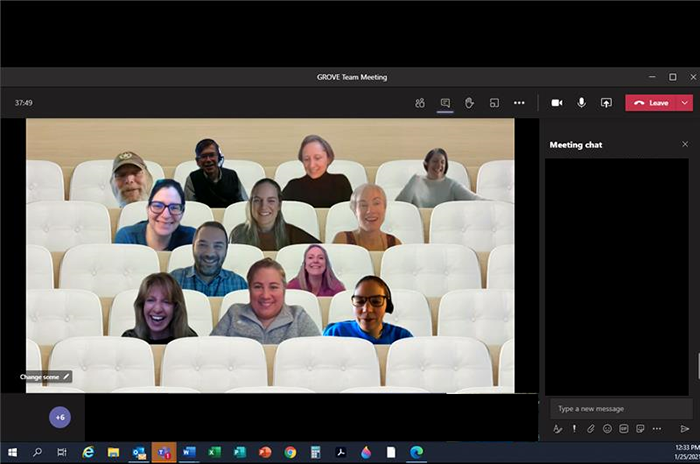
GROVE staff members work to promote Veteran engagement in health services research. (Top row: Mark Flower, Jeff Whittle, Paige Backland-Jarquin, and Kenda Steffensmeier. Second row: Leah Wendleton, Katie LaChappelle, and Gala True. Third row: Ray Facundo and Kelty Fehling. Bottom row: Kady Nearing, Sarah Ono, and Amber Lane.)
September 13, 2022
By Erica Sprey
VA Research Communications
"Rural Veterans live in areas where there are health care shortages, so their needs are likely to be unique compared to urban Veterans."
The expression "It takes a village" can mean different things. Commonly, it means relying on people in the community to help raise healthy children. But it can also mean working together with colleagues or friends to build a community for support and encouragement.
The VA Center for Growing Rural Outreach through Veteran Engagement (GROVE) aims to connect researchers with rural Veterans who live far from urban VA medical centers and resources. The Center also has an important secondary goal of serving as a resource hub and informal community for VA investigators interested in incorporating Veteran engagement methods into their projects.
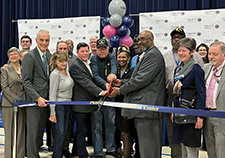
VA opens new research center to seek novel arthritis treatments
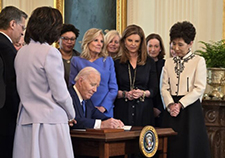
Executive Order for Women’s Health built on VA research
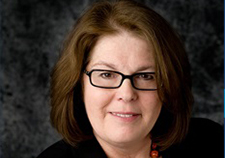
VA Researcher Named One of U.S.’ Top Female Scientists
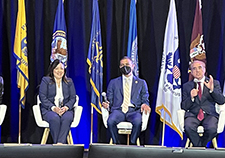
Under Secretary of Health, panel of experts discusses PACT Act impacts for Veterans
The center was funded in 2020 by the VA Office of Rural Health through the Rural Health Resource Center in Portland, Oregon, in order to expand Veteran engagement in research in rural areas of the country.
Dr. Sarah Ono, director of operations at the Rural Health Resource Center in Portland, has worked to support Veteran engagement in research for many years. She believes in the impact that Veteran engagement can have and supports finding ways to strengthen it within VA, says Leah Wendleton, co-lead for the GROVE center.
"Dr. Ono's early work included developing the 'Strengthening Excellence in Research Through Veteran Engagement' (SERVE) toolkit," Wendleton notes. The toolkit was created in collaboration with seven VA medical centers and reflects efforts to include Veterans and interested stakeholders in the design and dissemination of research studies.
Wendleton is a health science specialist at the Denver-Seattle Center for Innovation (COIN) for Veteran-Centered and Value-Driven Care in Aurora, Colorado. She also was the program manager for a community-based rural suicide prevention program called "Together With Veterans."
She explains that the GROVE team members are spread out across the United States and are located at VA medical centers in Milwaukee; Iowa City, Iowa; New Orleans; West Haven, Connecticut; Denver; and Portland, Oregon.
Coming from varied regions across the country helps the team be more effective. "We couldn't have that diverse perspective from researchers, otherwise," says Wendleton. "We talked to researchers across the country through our consultation service and through our community of practice, so we are hearing about the challenges and solutions that people are going through in real time, from all different kinds of facilities."
Close to 5 million Veterans live in rural communities, accounting for nearly one-quarter of all U.S. Veterans. More than 55% are 65 years or older, and just over half earn less than $35,000 a year, according to a 2018 VA report. Approximately 60% of rural Veterans are enrolled in VA health care, making access to VA medical centers an important consideration in supporting and promoting rural Veteran health.
"I believe it is easier for researchers to connect with urban Veterans, yet so many Veterans choose to live in rural regions after they serve. [That can cause a disconnect because] many of the VA quality improvement efforts will impact all Veterans," says Kelty Fehling, a health science specialist at the Denver-Seattle COIN in Colorado. Fehling co-leads the GROVE team.
"Rural Veterans tend to live in areas where there are health care shortages, so their perspectives and needs are likely to be unique compared to urban Veterans. They are a large part of our consumer base in VA, so we need to make sure that their needs are met."
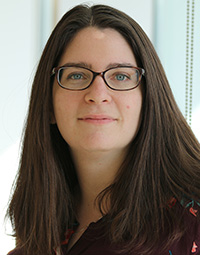
Leah Wendleton, MPH, MSW, GROVE co-lead, Denver-Seattle COIN, Aurora, Colorado.
The GROVE team has a menu of services that they provide to researchers and Veterans, depending on their needs. The offerings include a consultation service, the SERVE toolkit, Veteran engagement boards, and a community of practice.
In the spirit of encouraging networking, the team has created what they call "jam sessions." The sessions are an informal forum where clinicians, investigators, and research staff who work in Veteran engagement can seek and provide solutions to problems they encounter. Some past sessions were called "Don't let me down; prepping investigators to work with Veterans," and "Sorry seems to be the hardest word; anti-racism and inclusion in Veterans engagement."
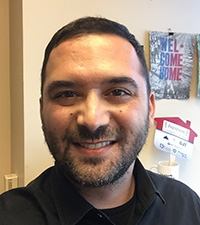
Ray Facundo MSW, GROVE team member, Denver-Seattle COIN, Aurora, Colorado.
Ray Facundo is a health science specialist at the Denver-Seattle COIN in Colorado. He previously worked in community-based participatory research under the direction of Dr. Gala True in New Orleans. When he was approached about joining GROVE, he says, "I immediately said yes. We've had a really great experience ever since." Facundo manages the GROVE consulting service and is involved in building a virtual platform for the team. The website development team is led by Katie LaChappelle in New Haven, Connecticut, and is meant to create a virtual space for researchers and Veterans to connect and discuss VA research.
"While we continue to work in a virtual environment, like most of us have been doing the past two years, there are not as many opportunities to come together and talk about solutions informally, outside of meetings," says Facundo. "In today's environment, there is little time to network in between meetings. You don't have that opportunity to walk your colleague down the hall, back to your office, and share ideas."
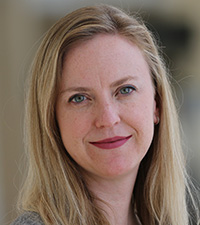
Kelty Fehling MPH, GROVE co-lead, Denver-Seattle COIN, Aurora, Colorado.
That's why the jam sessions can be so helpful, he says. "We used a picture of a tour bus on our slides to let people know this isn't a place where there is a hard agenda and speakers. It's going to be a place where more informal discussions and problem-solving happens."
While researchers find it helpful to consult with colleagues and the GROVE team, nothing can replace Veteran input. Pulling Veterans in early helps researchers learn what their needs are and how to design effective studies, according to Fehling. "Researchers will come to our Colorado board with ideas for interventions to do at the local CBOCs [community-based outpatient clinics]. But the Veterans can say, 'Right now we only have two nurses, we don't have a doctor, these are the services we can get.' They can be a set of eyes and ears on the ground."
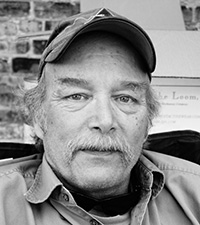
Mark Flower, Wisconsin Veteran, GROVE team member.
When the team is doing a consultation with a researcher, there is "usually a Veteran or two in the room," so that they can provide an end-user's perspective. GROVE team member Mark Flower is a Wisconsin Veteran who has worked for many years to promote Veteran engagement efforts. Facundo himself is a U.S. Army Veteran who served two deployments in Iraq. Prior to working at VA, he was the Veterans Resource Center coordinator at a state university, so he understands Veterans' needs from an insider's perspective.
"I feel there is a huge benefit from doing these consultations and collaborations with the many different voices that are on our team. Our team has a wealth of diverse experiences, which help us troubleshoot and brainstorm different strategies in real time during the consultations," says Facundo. "We all learn from each other during this process."
To read more about GROVE, visit the Health Services Research & Development website. If you have questions about the GROVE program or would like to request a consultation, you may reach out to Ray Facundo at raymond.facundo@va.gov.
VA Research Currents archives || Sign up for VA Research updates